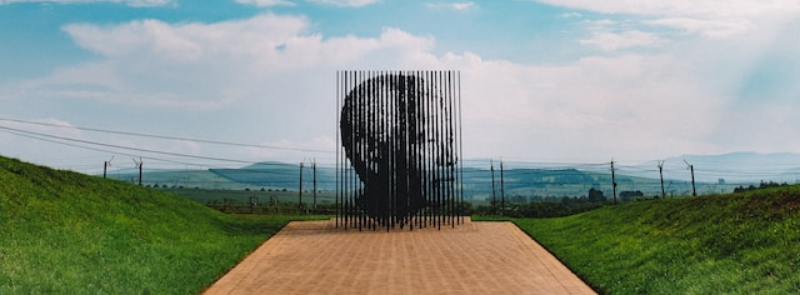
When It Occurs
Every July 18th
Official Website
Timeline
Days Passed (950)
# Hashtags
#NelsonMandelaInternationalDay #NelsonMandela
Nelson Mandela International Day, also known as Mandela Day, is an annual global observance dedicated to honoring Nelson Mandela. Celebrated on July 18, Mandela's birthday, the day was officially designated by the United Nations in November 2009, with the inaugural UN Mandela Day taking place on July 18, 2010. Nevertheless, various groups had already commenced celebrating Mandela Day on July 18, 2009.
Background:
- Origins: Nelson Mandela International Day was officially declared by the United Nations in November 2009. The first celebration was held on July 18, 2010, in recognition of Mandela's contributions to peace and freedom.
- Nelson Mandela: A global icon for his role in ending apartheid in South Africa, Mandela served as the country’s first black president from 1994 to 1999. He was awarded the Nobel Peace Prize in 1993.
Significance:
- Celebration of Mandela’s Legacy: The day honors Mandela's lifelong commitment to justice, human rights, and social change. It encourages individuals to follow in his footsteps by making a difference in their communities.
- Global Movement for Good: It inspires people worldwide to take action and make a positive impact through volunteerism and community service.
Key Components:
- 67 Minutes of Service: Individuals are encouraged to dedicate 67 minutes of their time to community service, representing the 67 years Mandela spent fighting for social justice.
- Educational Activities: Schools and educational institutions hold events and lessons about Mandela’s life and principles.
- Community Projects: Various community-based projects and initiatives are organized to address local needs, such as building schools, cleaning up neighborhoods, and providing healthcare services.
Challenges:
- Sustained Engagement: Ensuring that the spirit of Mandela Day extends beyond just one day and encourages continuous community service and activism throughout the year.
- Global Participation: Promoting widespread participation across diverse cultures and regions, especially in places where Mandela's legacy might not be as well-known.
Activities and Observance:
- Volunteerism: People engage in activities such as helping in shelters, visiting hospitals, teaching, and organizing community clean-ups.
- Fundraising: Events are held to raise funds for charitable organizations and initiatives that align with Mandela’s values.
- Awareness Campaigns: Campaigns are run to spread awareness about social justice issues, human rights, and the importance of service.
- Public Statements and Ceremonies: Governments, international organizations, and NGOs make public statements, hold ceremonies, and host events to celebrate Mandela's contributions.
Future Outlook:
- Expansion of Service Initiatives: Encouraging more people globally to participate in service activities and to carry forward the ethos of Mandela Day throughout the year.
- Educational Outreach: Enhancing educational programs to teach younger generations about Mandela’s legacy and the importance of social justice and community service.
Nelson Mandela's Legacy
Fight Against Apartheid:
- Mandela was a key figure in the struggle against apartheid, a system of institutionalized racial segregation and discrimination in South Africa.
- He spent 27 years in prison for his anti-apartheid activities before being released in 1990.
- His leadership in the negotiations to dismantle apartheid led to the establishment of multiracial elections in 1994, in which he was elected president.
Reconciliation and Peace:
- As president, Mandela focused on reconciliation between South Africa’s racial groups, establishing the Truth and Reconciliation Commission to address past human rights abuses.
- He promoted peace and unity, striving to build a democratic and inclusive society.
Human Rights and Social Justice:
- Mandela was a strong advocate for human rights, social justice, and the fight against poverty and inequality.
- His work with the Nelson Mandela Foundation and other organizations continues to address global social issues.
Quotes from Mandela:
- “Education is the most powerful weapon which you can use to change the world.”
- “It always seems impossible until it’s done.”
- “The greatest glory in living lies not in never falling, but in rising every time we fall.”
Conclusion
Nelson Mandela International Day is a significant observance that celebrates the life and legacy of one of the world’s most revered leaders. It encourages individuals to make a positive difference in their communities and to uphold the values of justice, equality, and service that Mandela exemplified throughout his life. By dedicating time to community service, educating about Mandela's contributions, and promoting social justice, the day aims to inspire continuous action towards creating a better, more equitable world.


